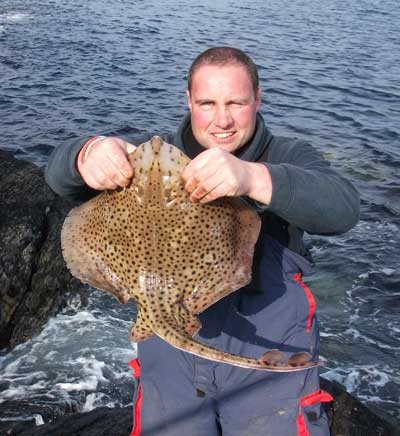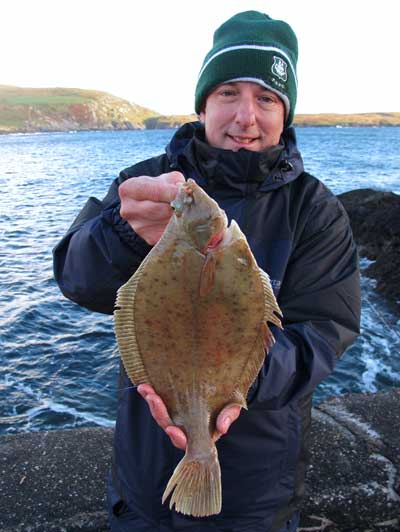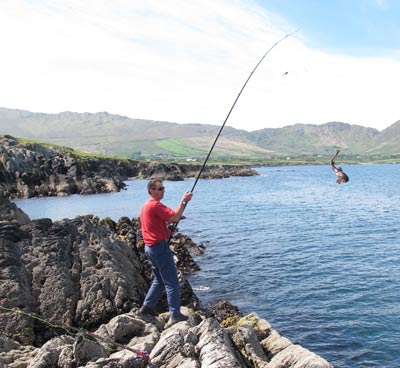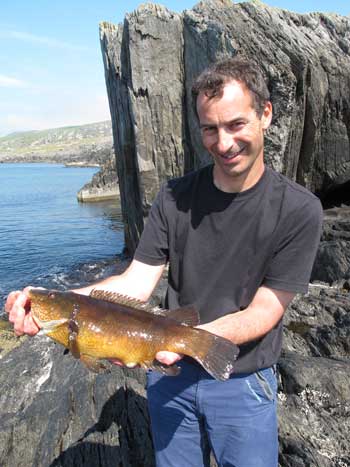For the last session of our weekend on the Beara David and I chose a rough ground venue much favoured by Paul Harris of Dromagowlane House. On the morning in question Paul kindly offered to show us the way down to the mark, as it is down a maze of twisty lanes and thus difficult to find. On arrival Paul gave us a heads up of the location, species present, and the best fishing spots. Thanking him we said our goodbyes before sorting out our equipment and packing what we needed into rucksacks, then made our way out onto a low headland. The morning was dull and windless and the sea flat calm ideal for a spot of rock hopping. David was mad keen to catch a conger, while I was hoping for a bull huss.
Finding our first fishing location, a steep cliff giving access to deep water, the rock formation thankfully was stepped and so quite easy to climb down. Choosing a rock platform high enough above the lazy swell to act as a base, we decided to warm up with a spot of jelly worming for pollack. Using a ten foot spinning rod with matching reel, I rigged up a trace comprising a 60 gram barrel lead above a bead and swivel to which was attached by five foot of 9.kg amnesia a 2/0 kamazan 496b. Threading on red jelly worms David (using similar tackle) and I commenced fishing, casting 70 meters then letting the lead touch bottom before slowly retrieving. The pollack initially were not obliging but after about an hour things picked up with takes occurring regularly. Pollack up to 4.lbs hooped our rods over crash diving towards the kelp, it was great fun, they are a true sport fish.
Replacing the jelly worm with a set of hokais I commenced fishing for mackerel to no avail, with only one frozen mackerel between us conger king David took control. Setting up a rotten bottom ledger rig he cast out our sole predator bait about 40 meters tightened up and waited. Within five minutes the rod top nodded then heeled over, lifting into the fish his Zziplex beachcaster took on a mean curve. A tug of war fight with occasional strong dives ensued, after a couple of minutes the fish showed in the clear water below. Occasional flashes of a white belly and a dark back initially had me thinking conger, but on reaching the surface Dave and I were delighted to see that it was a fine huss.
In fact a very big bull huss, well over the 10.lb mark and mean to boot vomiting it’s stomach contents up as we attempted to extract the hook, edible crab and fish bones comprising a lot of the contents. Pitch black with characteristic blotches on it’s tail we took a few quick snaps and returned it to Davy Jones locker, where upon he swam away none the worst for wear. Dave was shaking and absolutely delighted, as was I, our species count was now up to a creditable eight and we had broken two Beara ducks thanks to a cracking bull huss and the quality bass fishing from the evening before.
See also: Beara bass.














